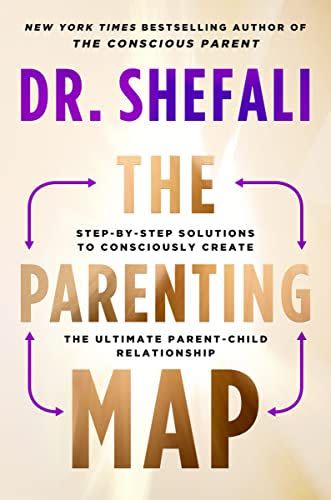Happiness and Success Are the Wrong Goals for Your Kids

"Hearst Magazines and Yahoo may earn commission or revenue on some items through these links."
Ask any parent what their greatest wish is for their kid and they will reflexively say, “I want my kid to be happy and successful.” We don’t even think through the deeper meaning of our reply. We act as if happiness and success are the holy grails of parenting. But chasing these two goals is actually the primary cause of stress and conflict in parenting, because the idea of wanting anything for anyone else is highly problematic. Wishing people well is one thing, but wanting them to be something specific is controlling.
Imagine that you’re working toward a graduate degree and struggling with it, and a friend comes up to you and, instead of understanding what you’re going through, says, “I cannot believe you are not happy! I want you to be happy. Stop being sad.” Or “Why aren’t you getting A’s? Why are you doing so badly? This is unacceptable!” How would that feel?
You would surely shut yourself off from her and shut down, wouldn’t you? Well, this is precisely how we behave with our kids. So attached are we to wanting them to be happy and successful that we make them feel unworthy when they are not. I can hear you protesting: “What is wrong with wanting our kids to be happy and have choices for success? That is what we want for our partners, our parents, and our friends, isn’t it?” Here’s the difference: When we wish these things for our children, we aren’t engaging in the passive well-wishing we offer to other people in our lives. Instead, these are active desires and expectations we project onto our children. We box our kids into our vision of what happiness and success look like without giving them the freedom to explore, mess up, get sad, get angry, and learn the valuable lesson that the messiness and beauty of life go hand in hand.
However well-intentioned we are, our desire for our kids to be happy and successful reeks of self-absorption. We want them to be happy and successful because then we feel happy and successful as parents. We feel competent and significant. Our desire is ultimately about how their success and happiness make us feel. How do I know this? Well, let a child show contentment with an activity that doesn’t meet the parent’s approval, and that parent is usually irritated, concerned, and unhappy. Sure, we want our children to be happy—so long as it conforms to our expectations.
But here’s the thing: Happiness is transient. To expect our children—or anyone—to be happy all the time is ludicrous. Success, too, is an esoteric idea determined by many complex qualifiers. But because of our blind attachment to these ideas, whenever we see our kids unhappy or unsuccessful, we lose our minds. When we see our kids cry, we immediately want to take away their pain—for them, and for ourselves. When we see them failing at school, we want to punish or fix them.
Caring for your kids actually means accepting them for who they are. If they are sad, then let them be sad. If they are angry, let them be angry. Or if they are struggling with math, let them struggle. Everyone goes through periods in their lives when they feel fear, frustration, sadness, and failure. And guess what? This is normal. It is human. It is acceptable.
It is time to replace the idea of happiness and success with something entirely new and different. We need to move away from outcome goals to process goals. Let’s focus on something new: presence and experience. When we focus on presence, we focus on a state of aliveness and connection to the present moment. When we focus on experience, we focus on embracing whatever we are going through in the here and now. Whether our children are crying or smiling, our focus is less on judging and more on allowing them to experience an authentic relationship to that state of being. What are they learning? What inner transformations are they going through? When we focus on such qualitative moments, life stops being about a fixed outcome and is focused instead on our state of being. There are no “good” or “bad” feelings anymore, just feelings.
Presence and experience are process-oriented; in contrast, happiness and success are outcome-oriented.
Why is this new approach so important for parents? Because it releases us, as much as our kids, from all the pressure. It allows us to embrace our kids’ natural states of being and self-expression without forcing them to be eternally cheerful or all-star geniuses. Accepting what is going on for your child—“Hey, my kid is struggling right now” or “My kid is not naturally inclined to math and calculus”—eases both parent and child into a flow state of existence rather than a pressure state.
Often, it’s our lack of inner happiness and an inner sense of worth that makes us project these needs onto our kids. When we work on our own inner connection, we stop using our kids to meet our own needs, and we let them experience their life as it unfolds naturally, without our control or interference. So let’s dump these concepts in the garbage, where they belong. When we do, I can guarantee that we will experience great joy and liberation—and so will our kids.

The Parenting Map: Step-by-Step Solutions to Consciously Create the Ultimate Parent-Child Relationship
$26.99
amazon.com
AmazonExcerpted from Parenting Map, by Dr. Shefali. Reprinted with permission of the publisher, HarperOne, an imprint of HarperCollins. Copyright © 2023 by Dr. Shefali.
You Might Also Like

